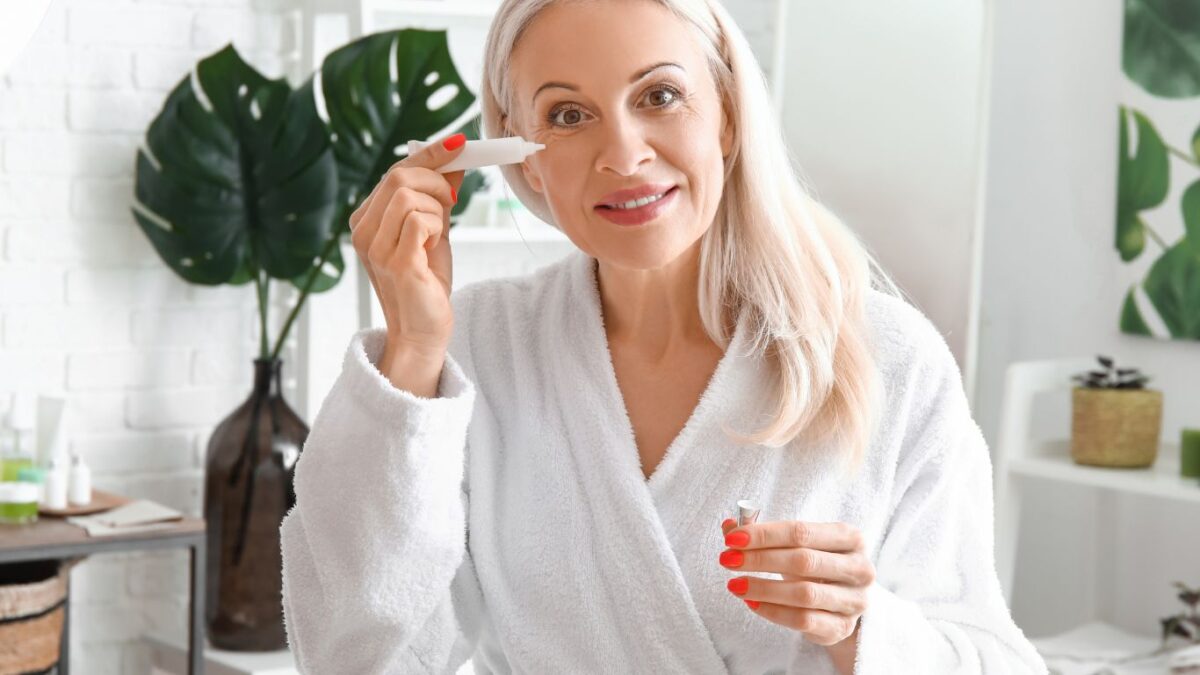How to Shield Your Skin During Menopause and Beyond

The sun gives us warmth and brightens our days, but it can be tough on our skin, especially during times like menopause. As our estrogen levels dip during this phase, our skin’s shield against those pesky UV rays gets weaker. So, it’s super important to amp up our sun protection game during menopause. Let’s dive into why this is so crucial and how we can best protect our skin:
The Impact of Sun on Menopausal Skin
During menopause, our skin faces a series of transformations. It gets thinner, doesn’t produce collagen as it used to, and its natural oil production takes a dip. All these changes set the stage for the sun to leave its mark more easily. From sunspots and wrinkles to the more alarming risks like skin cancer, it’s crucial for us to understand and address these vulnerabilities in our skincare routine.
Tips for Effective Sun Protection
- Broad-Spectrum Sunscreen: Always opt for a sunscreen that offers broad-spectrum protection, meaning it shields the skin from both UVA (aging) and UVB (burning) rays. A minimum of SPF 30 is recommended for daily use.
- Reapply Regularly: Sunscreen isn’t a one-time application in the morning. If you’re outdoors for extended periods, reapply every 2 hours and immediately after swimming or sweating.
- Don’t Skip Cloudy Days: Up to 80% of UV rays can penetrate through clouds, so don’t be deceived by overcast weather. Make sunscreen a daily habit, regardless of the forecast.
- Wide-Brimmed Hat: A hat with a broad brim offers additional protection, shielding the face, neck, and even the shoulders from direct sunlight. It’s a stylish and effective addition to your sun protection arsenal.
- Sunglasses are Essential: Protect your eyes and the delicate skin around them by wearing sunglasses that block 100% of UV rays.
- Seek Shade: Especially during peak sun hours (usually between 10 a.m. and 4 p.m.), try to stay in shaded areas or use an umbrella if you’re at the beach or a park.
- Wear Protective Clothing: Invest in clothing with built-in SPF or wear long-sleeved shirts and pants if you’re going to be out in the sun for extended periods.
- Mind Reflections: Water, sand, and even snow can reflect and amplify UV rays, increasing the risk of sunburn. Be extra cautious in such environments.
- Check Medications: Some medications can make the skin more sensitive to sunlight. Always check with your doctor or pharmacist and take necessary precautions if you’re on such medications.
- Regular Skin Checks: Regularly inspect your skin for any new or changing moles or spots. If you notice anything unusual, consult a dermatologist promptly.
The sun brings warmth and joy to our days, but we can’t forget how it might affect our skin. Let’s make sure we’re always protected when we step outside, so our skin stays glowing and happy. After all, it’s always best to prevent sun damage than to fix it later on.
